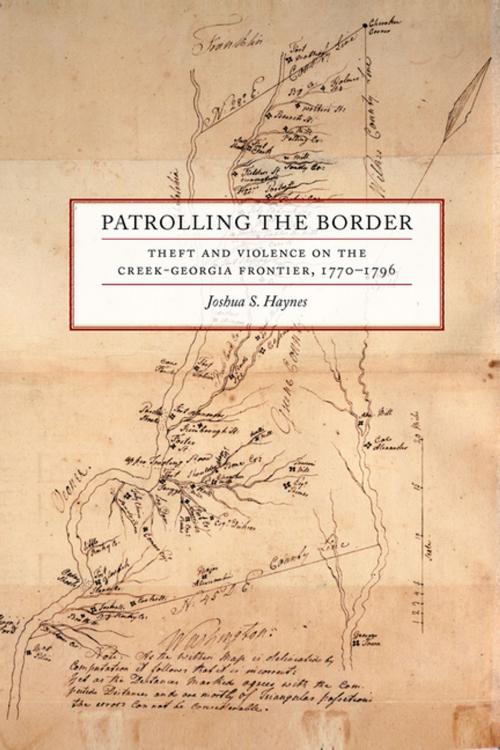Patrolling the Border
Theft and Violence on the Creek-Georgia Frontier, 1770–1796
Nonfiction, History, Americas, Native American, United States, Revolutionary Period (1775-1800)| Author: | Joshua S. Haynes | ISBN: | 9780820353173 |
| Publisher: | University of Georgia Press | Publication: | May 1, 2018 |
| Imprint: | University of Georgia Press | Language: | English |
| Author: | Joshua S. Haynes |
| ISBN: | 9780820353173 |
| Publisher: | University of Georgia Press |
| Publication: | May 1, 2018 |
| Imprint: | University of Georgia Press |
| Language: | English |
Patrolling the Border focuses on a late eighteenth-century conflict between Creek Indians and Georgians. The conflict was marked by years of seemingly random theft and violence culminating in open war along the Oconee River, the contested border between the two peoples. Joshua S. Haynes argues that the period should be viewed as the struggle of nonstate indigenous people to develop an effective method of resisting colonization.
Using database and digital mapping applications, Haynes identifies one such method of resistance: a pattern of Creek raiding best described as politically motivated border patrols. Drawing on precontact ideas and two hundred years of political innovation, border patrols harnessed a popular spirit of unity to defend Creek country. These actions, however, sharpened divisions over political leadership both in Creek country and in the infant United States. In both polities, people struggled over whether local or central governments would call the shots. As a state-like institution, border patrols are the key to understanding seemingly random violence and its long-term political implications, which would include, ultimately, Indian removal.
Patrolling the Border focuses on a late eighteenth-century conflict between Creek Indians and Georgians. The conflict was marked by years of seemingly random theft and violence culminating in open war along the Oconee River, the contested border between the two peoples. Joshua S. Haynes argues that the period should be viewed as the struggle of nonstate indigenous people to develop an effective method of resisting colonization.
Using database and digital mapping applications, Haynes identifies one such method of resistance: a pattern of Creek raiding best described as politically motivated border patrols. Drawing on precontact ideas and two hundred years of political innovation, border patrols harnessed a popular spirit of unity to defend Creek country. These actions, however, sharpened divisions over political leadership both in Creek country and in the infant United States. In both polities, people struggled over whether local or central governments would call the shots. As a state-like institution, border patrols are the key to understanding seemingly random violence and its long-term political implications, which would include, ultimately, Indian removal.















